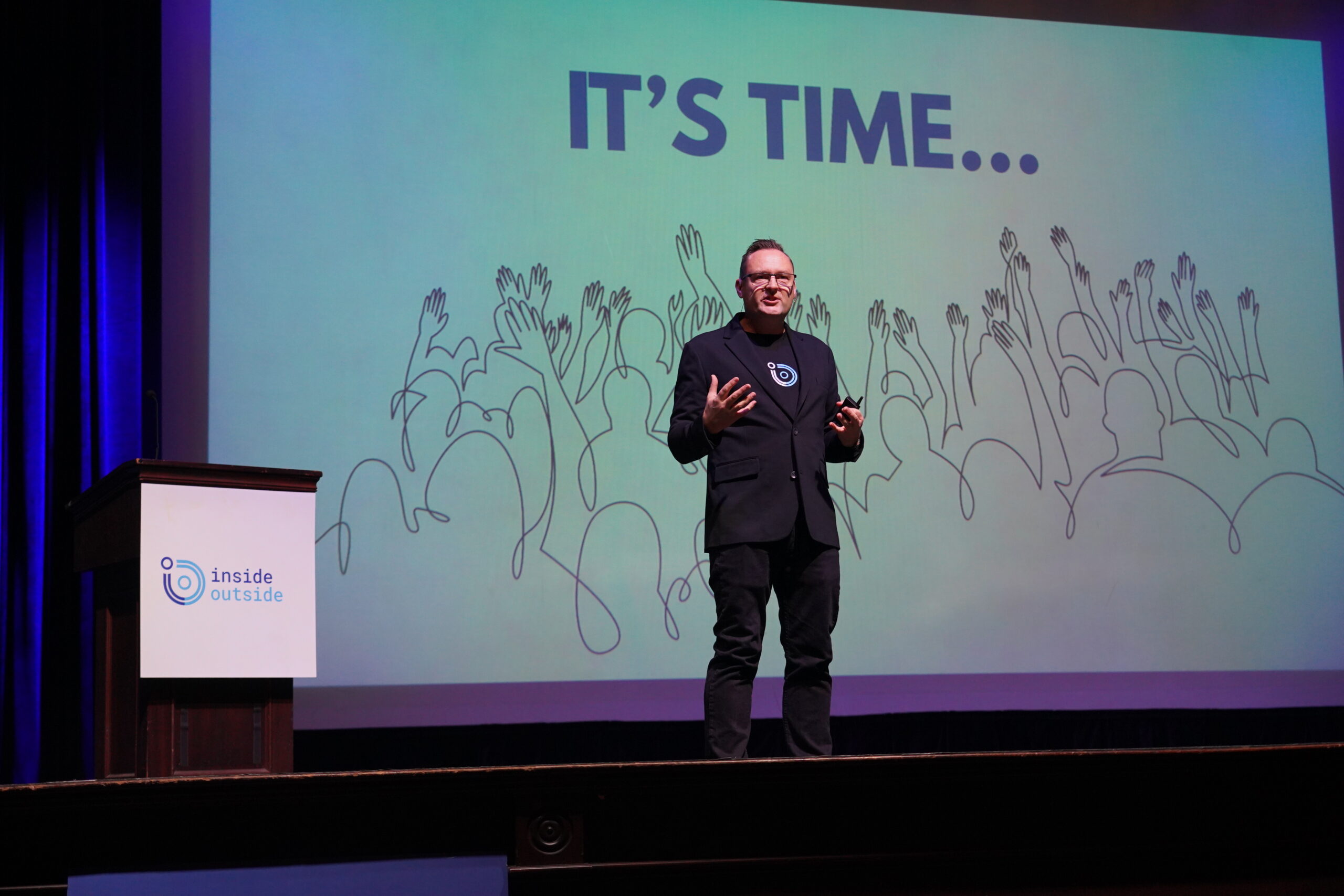
Thad Langford, the former CEO of Zave Networks and current entrepreneur in residence at OpenAir Equity Partners, spoke on Tuesday at the Technology Entrepreneur Speakers Program (Tech ESP). Tech ESP is a speaker series held in Kansas City that aims to highlight Silicon Prairie entrepreneurs, their stories and their successes. Langford (left) talked about experiences, lessons learned and the issues and challenges that led to Google’s acquisition of Zave Networks in 2011.
After Zave Networks was acquired, Langford joined OpenAir Equity Partners, a venture capital firm focusing on the mobile and wireless markets. He has since become an advisor of Kansas City startups like AgLocal and Leap2. He has actively been in engaged with the Silicon Prairie community, attending Big Omaha last week and making appearances at Kansas City events like Startup Weekend Kansas City.
Langford discussed his backstory at length at the Tech ESP event, and we’ll have more of that personal history on Silicon Prairie News in the future. But for the sake of this post, we’ll jump right to Langford’s time at the helm Zave Networks, which was another topic of significant conversation on Tuesday night.
Langford described Zave Networks as “a network platform for the distribution, processing and clearing of digital incentives between multiple parties seamlessly in real-time.” What does that mean? Langford broke that down into an analogy. “As Visa does for cash value transactions,” he said, “our network enables the redemption of digital incentives across multiple retailers at point-of-sale.”
Langford gave a few points on what he learned while heading Zave Networks.
1. Many say they want to be involved in a startup. Do they really?
Langford said that when he meets first-time entrepreneurs he asks them two questions:
1. You have a trash can piling up in the office. What do you do? Do you take care of it yourself, or do you wait for someone else to act?
2. Can you live with your business failing?
2. Passion and emotion are part of the equation. But keep them in check.
“It’s a crazy, emotional ride,” Langford said. One day Zave Networks signed a big deal with Proctor and Gamble, but at the same time they got a lawsuit letter from a company saying they were infringing on an existing patent. Langford’s example pointed clearly to how startup life and the issues that randomly come about can bend success.
3. It is a lonely position. Find others like you.
“It’s important,” Langford said, “to find people like you because they have more than likely been through what you are experiencing.”
4. There’s always too much to do. Prioritize three “impact” items.
Langford discussed how he used to identify three items that would impact Zave Networks and make sure they were accomplished at the end of the day.
5. It really IS about the team.
“You do not want to compromise on your team,” Langford said. “At the end of the day, you have to have believers.”
6. If you don’t have believers, the roller coaster ride starts getting messy.
“The ‘experts’ say to hire slow, fire fast,” Langford said. “They are wrong. … Startups are different.” In his opinion, startups must fire fast but also hire fast.
“Make sure you hire the right people fast and equally,” he said. “So fire fast, but do it fairly and be transparent.”
7. Espouse a big vision and prioritize and execute like crazy.
Langford offered several nuggets on the significance of communicating a vision:
- “You have to be able to articulate a big vision.”
- “Cadence is VERY different in a startup.”
- “The CEO and management team must have a cadence that is in sync.”
- “It’s a cadence of communication. You have to be able to communicate with your entire employee base much more frequently.”
8. If you have the choice, take the “smart money.”
Bring in investors that can not only bring you money but also bring partners and strategic relationships, Langford said. And be advised, he added: Nearly everyone will throw stones or poke holes.
9. Have an unusual level of resilience.
Langford defined resilience as the capacity to absorb energy from disruption. He then discussed the importance of fearlessness, an attribute he most commonly sees in young entrepreneurs. “Be fearless,” he said. “It will serve you well.”
10. It can be done in Kansas City.
“If you’re doing the right things and you’re being fearless,” Langford said, “you can start a company in Kansas City.”
Credits: Photo of Langford from bizjournals.com.


